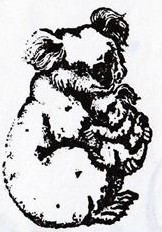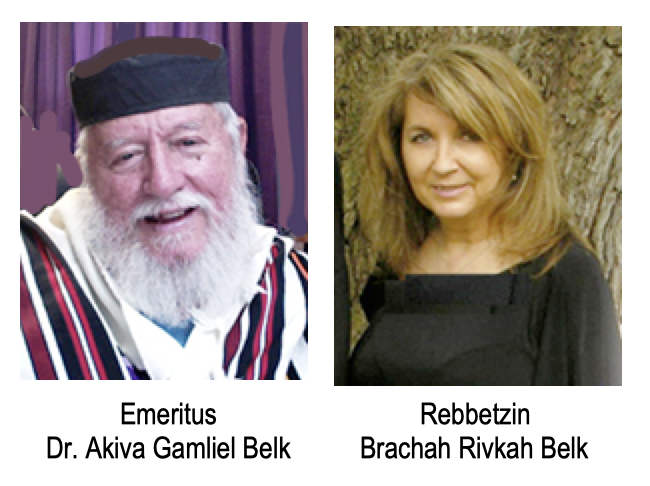8 Walking In G-d’s Ways
Mitzvah 8
Eighth Command: Walking in G-d’s Ways
By this injunction we are commanded to be like G-d [ praised be He] as far as it is in our power. Rambam, The Commandments Volume 1 page 11
And the L-rd Passed by before him, and Proclaimed, The L-rd, The L-rd G-d, Merciful and Gracious, Long Suffering, and Abundant in Goodness and Truth: Shemot (Exodus) 34.6
And the L-rd passed by before him, and proclaimed,
- יְהֹוָה HaShem – compassion before a person sins;
- יְהֹוָה HaShem – compassion after a person has sinned;
- אֵל G-d – Mighty in Compassion, to give all creatures according to their need;
- רַחוּם Rachum – Merciful, that humankind may not be distressed;
- וְחַנּוּן Ve’chanun – and Gracious if humankind is already in distress;
- אֶרֶךְ אַפַּיִם Erech apayim – Slow to anger;
- וְרַב חֶסֶד Ve’rav chesed – and Plenteous in kindness;
- וֶאֱמֶת Ve’emet – and truth;
- נֹצֵר חֶסֶד לָאֲלָפִים Notzer chesed laalafim – Keeping kindness unto thousands;
- נֹשֵׂא עָוֹן Noseh avon – Forgiving iniquity;
- וָפֶשַׁע Vafeshah – and transgression;
- וְחַטָּאָה VeChata’ah – and sin;
- וְנַקֵּה VeNakeh – and Pardoning
Who is a God like you, who Pardons iniquity, and Passes over the transgression of the remnant of His heritage? He does not Retain His anger forever, because He Delights in mercy:
He will again Have compassion upon us; He will Suppress our iniquities; and You will Cast all their sins into the depths of the sea:
You will Show truth to Jacob, and loving mercy to Abraham, as You have Sworn to our fathers from the days of old: Michah, 7:18-20.
- מִי אֵל כָּמוֹךָ Who is a G-d like You,
- נֹשֵׂא עָוֹן Who Forgives sin,
- וְעֹבֵר עַל פֶּשַׁע and Passes over the transgression
- לִשְׁאֵרִית נַחֲלָתוֹ of the remnant of His heritage?
- לֹא הֶחֱזִיק לָעַד אַפּוֹ He does not Retain His anger forever,
- כִּי חָפֵץ חֶסֶד הוּא because He Delights in mercy:
- יָשׁוּב יְרַחֲמֵנוּ He will again Have compassion upon us;
- יִכְבּשׁ עֲוֹנֹתֵינוּ He will Suppress our iniquities;
- וְתַשְׁלִיךְ בִּמְצֻלוֹת יָם כָּל חַטֹּאתָם and You will Cast all their sins into the depths of the sea:
- תִּתֵּן אֱמֶת לְיַעֲקֹב You will Show truth to Jacob,
- חֶסֶד לְאַבְרָהָם and loving mercy to Abraham,
- אֲשֶׁר נִשְׁבַּעְתָּ לַאֲבֹתֵינוּ as You have sworn to our fathers
- מִימֵי קֶדֶם from the days of old:
The L-rd shall Establish you as a holy people to Himself, as He has Sworn to you, if you shall keep the Mitzvot of the L-rd your G-d, and walk in His Ways: Devarim (Deuteronomy) 28.9
HaShem Starts this with Mercy for that is what the name HaShem is.
Observe Everything from Aleph to Tav of the Commandments – HaShem – Eloheka – with Mercy and Judgment
Following the Path of Torah enables the soul to walk. Studying the Torah and performing the Commandments enables us to move towards G-d.
Yom Kippur is not just about judgement and seeking good for the coming year but is mostly about devekut. This day is the only day in the year when we are allowed to be as close to HaShem as one can be in this world.
The purpose of the soul, when it comes into the body, is to be rewarded with returning to its root and to cleave unto Him, while still clothed in the body, as it is written, to love the L-rd your G-d, and to walk in all His Ways, and to keep His Mitzvot, and to cleave unto Him. You see that the matter ends in to cleave unto Him, as it was prior to clothing in the body.
However, great preparation is required—which is to walk in all His Ways. Israel knows the ways of the Creator. Indeed, this is the meaning of Torah, that has 613 Mitzvot. He who walks by them will finally be purified until his body will no longer be an iron partition between him and his Maker, as it is written, And I will take away the stony heart out of your flesh. Then he shall cleave unto his Maker just as he was before the clothing of the soul in the body.
It turns out that there are three discernments:
- Israelis he who strains himself to return to his root.
- The Creator, which is the root one longs for.
- The 613 Mitzvot of Torah, by which one purifies one’s soul and body. This is the spice, as it is written, I have created the evil inclination, I have created for it the Torah as a spice.
In the end, any servant of the Creator attains them as single, united and unified discernment. They only appear to be divided into three because of one’s incompleteness in the Way of God. http://www.kabbalah.info/eng/content/view/frame/58582?/eng/content/view/full/58582
The Holy One, Blessed be He, placed the yoke of Torah and Mitzvot upon the body so that it would become purified and sublimated by it, but the body regards this as an unwanted burden. …purify and refine the body, and do not crush it by mortification. The Mystical Dimension, Volume 1 Jacob Immandue; Schochet page 73
So too the Holy One, Blessed be He, said to Israel: My children,I Created an evil inclination, which is the wound, and I Created Torah as its antidote. If you are engaged in Torah study you will not be given over into the hand of the evil inclination, as it is stated: “If you do well, shall it not be lifted up?” (Genesis4:7). One who engages in Torah study lifts himself above the evil inclination.
However, these three are actually one and the same. Talmud Kiddushin 30b
This is where mussar comes into play. Mussar is a Jewish spiritual practice that gives concrete instructions on how to live a meaningful and ethical life. Our inner drives, wounds and appetites often manifest as the Yetzer Hara (the Evil Inclination), actively preventing us from behaving as we know we should. Those who practice Mussar focus on the path towards being pious and saintly, by working on their individual spiritual challenges. Refining our emotions that drive us is what mussar teaches. Each of us comes into life with a G-d Given purpose. There is a path our soul is meant to follow. Our task is to define what that path is for each of us.
Everything that exists in our inner world is an aspect of our soul. Our personality, emotions, talents, desires, conscience and wisdom. Every faculty we ordinarily assign to the mind, like thought, logic, memory and forgetting, are features of our soul.
Creation is a work-in-progress toward restitution (tikkun), whereby all subjects of Creation work to return things to their proper place so that Creation’s original plan can continue. Each creature’s contemplation of heart and works – and its applications of power upon the inner universes. will return the Shekkinah to Her true place in unity with HaShem G-d. The eternal Sabbath will be regained. Window of the Soul James David Dunn page 21-22
So we should first learn HaShem’s Ways, then begin to practice them applying the discipline our bodies need for refinement but we should not stop there. We need to refine our soul that has acquired so much that is not holy.
My son, keep the commands of your father, and do not forsake the instruction of your mother. Bind them always upon your heart, tie them upon your neck. When you walk, it shall lead you; when you lie down, it shall guard you, and when you awaken, it shall speak for you. For a Commandment is a Candle, and the Torah is Light, and disciplining rebukes are the way of life; Mishlei (Proverbs) 6.20-23
To have true freedom of choice we must be able to control our emotions so that we can choose the correct path to take in any circumstance. Each and every moment of our lives is a Gift from our Creator. What we do with that gift is our choice. We often look back over times in our lives where in certain circumstances we wish we had made better choices. The past is the past and that cannot be changed. We can, however begin a new path that will G-d Willing be full of better choices.
The meaning of the middle pillar of the Sefirot,
which is the meaning of
The Torah, the Creator, and Israel, are one.
Hence, when one is studying Torah, he should study Lishma. This means that he studies with the intention that the Torah will teach him, meaning as is the name of the Torah, which means 198 Shamati “instruction.” And because “the Torah, Israel, and the Creator are one,” the Torah teaches one the ways of the Creator, how He is clothed in the Torah. Shemati #78
May we try each day to learn about G-d, to follow His Ways and His Truth

Blessings and Peace
Rebbetzin Revi
